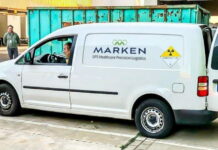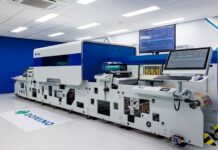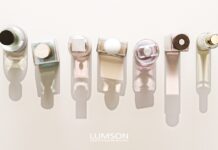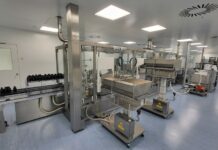Xeikon has announced TITON technology, a new toner formulation offering all the benefits of UV inks without the disadvantages and is a sustainable solution to support the use of paper-based packaging for food products.
To meet industry needs for sustainable printing methods and environmentally friendly packaging production, Xeikon, Xeikon, a division of Flint Group, and a leader in digital printing technology, has announced TITON technology, a new toner formulation offering all the benefits of UV inks without the disadvantages.
“The flexible packaging market is moving towards more sustainable paper-based solutions in response to strong consumer demand for plastic-free alternatives,” says Frank Jacobs, Market Intel & Senior Product Manager. “With the new TITON technology, Xeikon is offering a sustainable solution for an unexplored and wider variety of applications to fully support brand owners, designers and printers wishing to increase their use of paper-based packaging for food products.”
The company plans live demos of the technology at the upcoming Xeikon Café Europe, April 26-28
Food-safe and odorless
TITON builds on the core value of Xeikon dry toner technology which, due to the absence of any liquid (mobile) components, is the most food-safe technology in the digital landscape, even with only paper as the main functional barrier. As it is also completely odor- and tasteless, it will not affect the customer experience when the product is consumed. These key characteristics make TITON toner suitable for a broad range of applications with indirect and direct food contact.
TITON toner also impresses by the excellent resistance to scuffing and scratching, water, sunlight, high temperatures and a large set of liquid chemicals, without any type of protective layers such as varnishing or lamination. A substantial feature is the ability to withstand heat sealing temperatures of up to 220-260°C (428-500°F), which is crucial to maintaining the pack’s integrity and protecting the product.
As brand owners continue to convert film-based packaging to paper, TITON can be employed to print many types of flexible packaging for food products. It can be used for papers that are coated on one side for bags, pouches and sachets, or on both sides for wrappers such as baked goods, confectionery, sugar, flour, herbs and spices, and coffee and tea.
Allowing brand owners to move to recyclable paper-based packaging puts TITON technology in a groundbreaking position in the digital printing landscape, and it gives printers the opportunity to expand their capabilities into applications that could not previously be addressed with digital, complementing their conventional flexo presses.
“With the migration towards paper-based packaging printing, the demand on the print technology has become more stringent in terms of being food safe without a plastic functional barrier or plastic lamination to protect the print itself,” states Jacobs.
Improving OEE
Being able to print directly on paper substrates without varnishing or lamination, either inline or offline, has a significant impact on the Overall Equipment Effectiveness (OEE) of the digital printing operation.
Varnishing and lamination require additional setup time and create more waste in the process. Furthermore, water-based varnishes used to achieve food safety require a significant amount of maintenance, which eats into productive uptime. Lamination can also negatively affect the recyclability of the packaging. TITON toner is the only digital solution that can address this market without the time and cost implications of further surface processes, thereby improving speed to market, profitability, and productivity.
The first digital press model to run TITON technology will be the Xeikon CX500t, a new member of the CHEETAH series. Adding extra capabilities to the successful 508mm (20 inches) wide machine, with the new toner technology, allows converters to broaden their reach and enter new market segments.



























